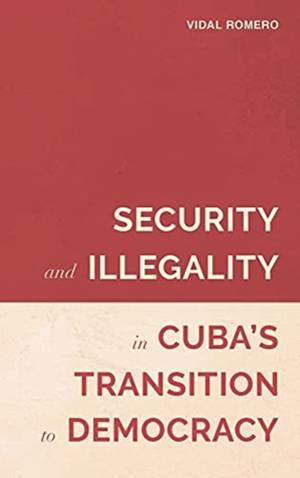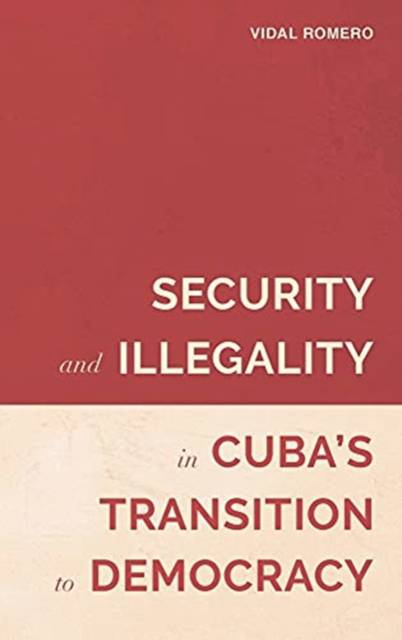
Bedankt voor het vertrouwen het afgelopen jaar! Om jou te bedanken bieden we GRATIS verzending (in België) aan op alles gedurende de hele maand januari.
- Afhalen na 1 uur in een winkel met voorraad
- In januari gratis thuislevering in België
- Ruim aanbod met 7 miljoen producten
Bedankt voor het vertrouwen het afgelopen jaar! Om jou te bedanken bieden we GRATIS verzending (in België) aan op alles gedurende de hele maand januari.
- Afhalen na 1 uur in een winkel met voorraad
- In januari gratis thuislevering in België
- Ruim aanbod met 7 miljoen producten
Zoeken
Omschrijving
This book examines present security conditions in Cuba and forecasts the effects that economic and social liberalization could have on levels of criminality. For decades, Cuban citizens have enjoyed relatively good security, as a consequence of surveillance and tight political control by an authoritarian state. However, economic liberalization necessitated by the loss of Soviet support has resulted in illicit activities and increased criminality including drugs, contraband and human trafficking. Today, relatively good security and a stable political system coexist with widespread illegality. But as restrictions are eased, the average citizen is becoming less secure. Cuba's privileged geographical location, combined with economic scarcity, the remnants of the communist system and the local criminal organizations it created, also makes it vulnerable to more dangerous foreign criminal groups.
Based on both quantitative and qualitative data including in-depth interviews with experts on Cuba and democratization and observational research in Cuba itself, the book seeks to identify the risks associated with liberalization and to explore workable solutions. More broadly, it aims to shed light on how the negative consequences of social and economic liberalization can be minimized for the average citizen during periods of political transition from authoritarian systems. How can an environment be created in which safety is not sacrificed for more open markets and politics?
VIDAL ROMERO is Professor in Political Science at the Instituto Tecnológico Autónomo de México and Co-Director of its Centre for the Study of Security, Intelligence, and Governance.
Based on both quantitative and qualitative data including in-depth interviews with experts on Cuba and democratization and observational research in Cuba itself, the book seeks to identify the risks associated with liberalization and to explore workable solutions. More broadly, it aims to shed light on how the negative consequences of social and economic liberalization can be minimized for the average citizen during periods of political transition from authoritarian systems. How can an environment be created in which safety is not sacrificed for more open markets and politics?
VIDAL ROMERO is Professor in Political Science at the Instituto Tecnológico Autónomo de México and Co-Director of its Centre for the Study of Security, Intelligence, and Governance.
Specificaties
Betrokkenen
- Auteur(s):
- Uitgeverij:
Inhoud
- Aantal bladzijden:
- 174
- Taal:
- Engels
- Reeks:
- Reeksnummer:
- nr. 1
Eigenschappen
- Productcode (EAN):
- 9781855663527
- Verschijningsdatum:
- 18/06/2021
- Uitvoering:
- Hardcover
- Formaat:
- Genaaid
- Afmetingen:
- 155 mm x 231 mm
- Gewicht:
- 430 g

Alleen bij Standaard Boekhandel
+ 306 punten op je klantenkaart van Standaard Boekhandel
Beoordelingen
We publiceren alleen reviews die voldoen aan de voorwaarden voor reviews. Bekijk onze voorwaarden voor reviews.









